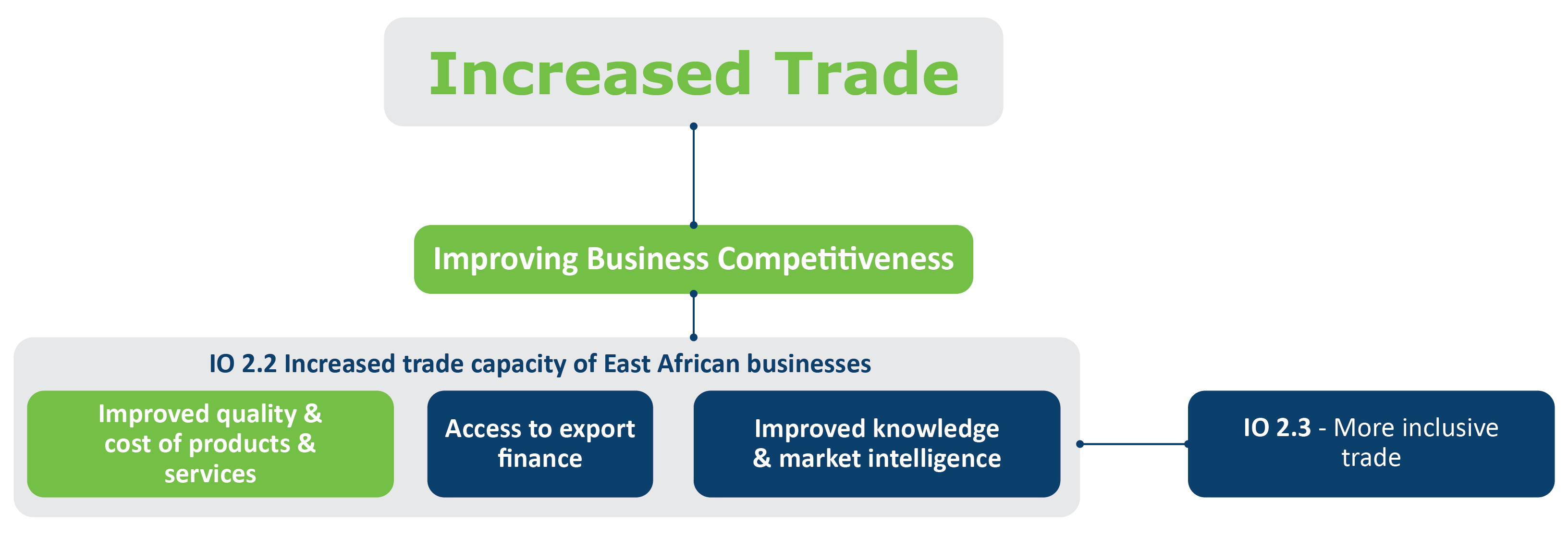Improving Business Competitiveness
To take advantage of trade opportunities, the private sector in Eastern Africa must be able to compete in the global market and with inflows of foreign imports to the EAC. The private sector must produce safe and competitive goods and services on time for their customers, as part of a functioning and efficient market system. Through its Outcome 2 interventions, TMA will facilitate these market functions, fostering close partnerships with the private sector and promoting crowding-in and replication of successful relationships. This is all with a view to enhancing the scale of its impact and future sustainability through market-based solutions.
IO 2.1 – Increased trade capacity of Eastern African businesses
TMA seeks to enhance the capacity of Eastern African businesses to trade through supporting the development of better quality of products and services. This applies to domestic and intra-regional trade (through greater import substitution) which will be supported through TMA’s geo-spatial Trade Logistics Cluster (TLC) facilities; and to exports through improving Eastern African businesses ability to capitalise on foreign markets by improving knowledge and market intelligence on target destinations. Trade Logistics Clusters will also improve the interface between local producers and logistics providers, making the ‘last mile’ to market more seamless. Export capability programmes will focus on high potential sectors for export growth.
IO 2.2 – More inclusive trade
Although TMA’s programming in Strategy 2 is largely focused on supporting women in trade, the intermediate outcome has been termed ‘more inclusive trade’ to cover the inclusion of other disadvantaged groups such as people living with disabilities and refugees. On women in trade, the premise is that greater inclusion of women in trade can improve competitiveness and ensure more equitable distribution of gains from trade. TMA implements a range of projects, mainly in the communities surrounding Eastern African border crossings, designed to tackle gender-based constraints faced by women in trade. This creates increased opportunities for women in the trade sector.















